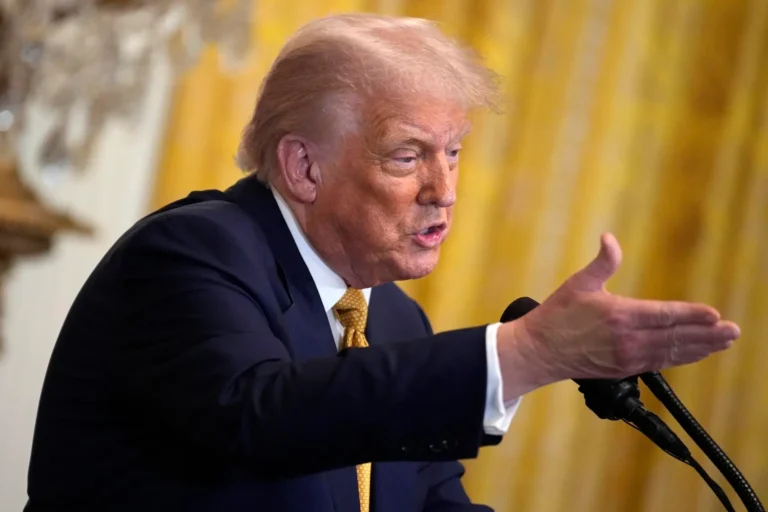
President Donald Trump says he’s planning to enact auto tariffs in the “neighborhood of 25%” to encourage companies to shift production from overseas.
Trump said that while a full announcement would come April 2, the import duties would likely start at 25%. He said he would charge the same amount for pharmaceuticals and semiconductors and gradually increase the tariffs over time.
“It will be 25% and higher, and it will go very substantially higher over a course of a year,” Trump said during a news conference at his Mar-a-Lago estate in Florida. “But we want to give them time to come in because, as you know, when they come into the United States, and they have their plant or factory here, there is no tariff, so we want to give them a little bit of a chance.”
Tariffs have become Trump’s top negotiation tool in his new term, with the president threatening to put them on many countries and specific industries to protect U.S. supply chains and jumpstart job creation in the U.S. Criticized by experts as the equivalent of a tax paid by American consumers on imported goods, Trump’s team has argued they will not lead to increased inflation.
The administration is looking to start rolling out so-called reciprocal tariffs on countries that tax imports from the United States on April 2. Steel and aluminum tariffs are set to take effect on March 12. Tariffs that Trump imposed on Mexico and Canada will go into effect in early March if the countries do not receive an extension on a temporary pause.
Reciprocal tariffs are expected to go on countries with the largest trade deficits first. The European Union is also expected to get hit with tariffs early in the process, unless it slashes its 10% rate on U.S. car imports. The U.S. currently charges a tariff rate of 2.5% on European car imports. But it charges a rate of 25% for pickup trucks.
Trump has repeatedly taken swipes at Europe for not purchasing more American-made cars. The administration has also taken aim at the EU’s value-added tax, which is used in place of a sale tax. The EU’s trade chief will meet with Trump administration officials this week in Washington.
The United States had a trade deficit of $235.6 billion with the EU in 2024, according to the U.S. Census Bureau.







